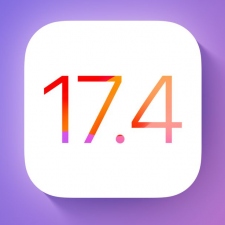Apple has officially announced that home screen Web Apps, also known as Progressive Web Apps (PWAs), will no longer be supported in EU member states with the upcoming iOS 17.4 release.
This decision is a direct response to the EU’s Digital Markets Act, which requires Apple to open up iOS in the region to alternative app stores. This move aims to provide developers and publishers with more access to the platform and more control over what they can offer on it.
While complying with the DMA and maintaining support for Web Apps, which use Safari’s webkit to mimic apps, was initially considered, Apple found that it posed significant security risks and required excessive monitoring. By stating that web apps are built directly on WebKit, the same engine used by Safari, Apple emphasized the importance of security and privacy for native iOS apps. However, with the DMA in effect and iOS opening up to alternative app stores, the presence of Web Apps became a potential threat to security.
In light of these factors, Apple has decided to remove support for Web Apps as the most viable solution. Essentially, European developers, publishers, and consumers will need to forego Web Apps if they wish to comply with the DMA.
Understanding Web Apps:
Web Apps originated in the early days of the iPhone before the introduction of Apple’s App Store. Initially hesitant to allow any app store other than its own, Apple compromised by enabling Web Apps to function on Safari, providing a workaround for the limitations at the time. However, the eventual launch of the App Store proved to be a more successful solution for Apple and developers.
With the DMA prompting Europe-specific changes on iOS and the potential security risks associated with maintaining Web Apps amid these alterations, Apple determined that removing support for Web Apps was the safest course of action for user security.
According to Apple, integrating home screen apps to comply with the DMA would necessitate an entirely new integration architecture, which is deemed unfeasible given the existing changes and the security concerns posed by malicious web apps. The inclusion of alternative browser engines under the DMA also raises further security issues.
Implications of the Update:
Following the iOS 17.4 beta update, the discontinuation of Web Apps in Europe means that developers in the region can no longer create or offer Web App versions of their websites. Users with existing Web Apps will notice that they no longer function as standalone services but instead function as bookmarks that open in the browser.
Previously, PWAs on iOS allowed for data storage independent of the browser session, offering a convenient way for users to access sites without repeated sign-ins. Some services, like Facebook Gaming, utilized web apps to avoid the Apple App Store and associated fees.
Despite these changes, the prevalence of ‘genuine’ apps makes it unlikely that users or developers will be significantly impacted by the removal of Web App support. Apple cited minimal user adoption of home screen apps as a contributing factor to its decision.
While Apple acknowledges the inconvenience caused by this change for developers of home screen Web Apps and users, it believes that the decision was necessary to comply with the DMA and prioritize user security.
Overall, Apple’s decision to ban Web Apps in Europe appears more as a strategic move in response to legal requirements rather than a significant disruption for developers or users.
Still, some smaller developers have expressed concerns publicly, stating that the change is impacting their user experience and hindering their ability to provide seamless services.


